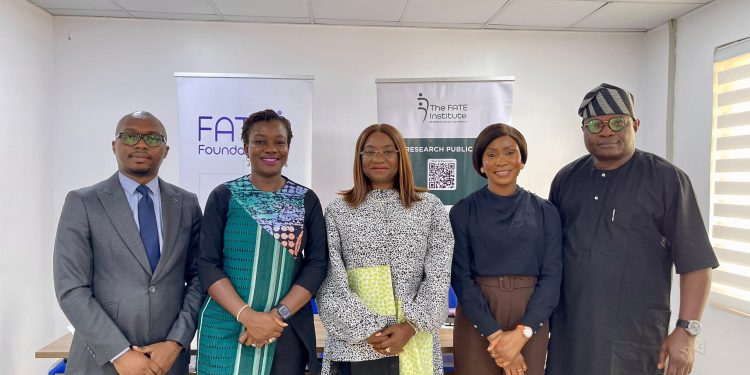The FATE Institute has emphasized the need for inclusive policy reforms to strengthen Nigeria’s small and medium-sized enterprises (SMEs), ahead of its 11th Policy Dialogue Series, scheduled for Wednesday, November 19, 2025, at The Metropolitan Club, Victoria Island, Lagos.
Speaking at a press briefing on Thursday, November 13, at the FATE Foundation Office in Ilupeju, Lagos, Amaka Nwaokolo, Director of the FATE Institute, said the organization exists to bridge the gap between research and policy, ensuring entrepreneurship continues to drive inclusive growth.
“The Policy Dialogue Series began as a platform for engagement between policymakers, business leaders, researchers, and development partners,” Nwaokolo said. “Each year’s theme reflects evolving policy priorities, and this year’s focus on industrialization through enterprise marks a critical shift from entrepreneurship for survival to entrepreneurship for structural transformation.”
Cecilia Akintomide, Chairperson of the 2025 PDS Technical Committee, said Nigeria’s industrial future depends on the productivity of millions of small businesses. She called for a bottom-up approach that places SMEs at the heart of industrial value chains rather than focusing solely on large corporations.
“Nigeria’s industrial future won’t be built by a few big players,” Akintomide said. “It will be built by millions of small producers people upgrading their skills, improving productivity, and growing together to power a more inclusive economy.”
Dr. Wilson Erumebor, Senior Research Fellow at the FATE Institute, shared preliminary insights from reports to be launched at the main Dialogue, including the 2025 State of Entrepreneurship in Nigeria Report and Beyond the Hustle: Nigeria’s Industrial Reawakening.
He said the 2025 State of Entrepreneurship Index rose slightly to 0.47, signaling cautious optimism among entrepreneurs. Youth-led businesses reported growth of 65.8%, while female-led businesses outperformed male-led ventures with 69.2% reporting growth. Erumebor noted that only 26.3% of female-led enterprises accessed institutional credit, highlighting persistent structural challenges.
“Entrepreneurs created over 14,000 new jobs this year, yet net employment fell by about 2,300,” Erumebor said. “This shows that despite a challenging economy, SMEs are doing everything they can to survive, grow, and protect jobs.”
Dr. Femi Egbesola, Vice-Chair of the 2025 PDS Technical Committee and President of the Association of Small Business Owners (ASBON), said SMEs face daily operational challenges, including unreliable power supply, limited access to finance, and inconsistent government policies.
“When small businesses thrive, industries are born, and economies transform,” Egbesola said. “Nigeria’s industrial journey has been top-heavy and bottom-fragile; real change will come when policies actively support SMEs at the grassroots.”
The 11th Policy Dialogue Series aims to provide actionable recommendations for policymakers, business leaders, and entrepreneurs to strengthen Nigeria’s SME ecosystem and advance inclusive industrialization.
Erumebor concluded: “The data reinforces what the Industrialization Report shows: Nigeria’s growth challenge is not a lack of entrepreneurship, it’s the missing middle. We need dynamic small firms that can connect micro-enterprises to larger industries through local production, supply networks, and value chains.”
With the Dialogue just days away, the FATE Institute press briefing underscored the critical role of SMEs in driving Nigeria’s industrial and economic growth, calling on policymakers and stakeholders to turn research into actionable interventions.










